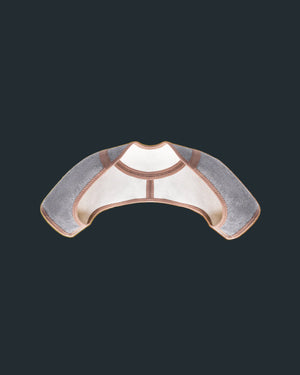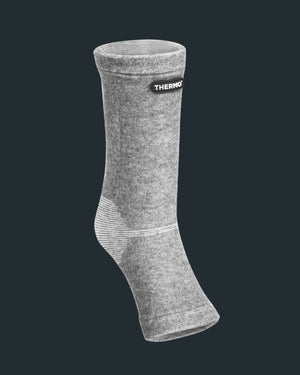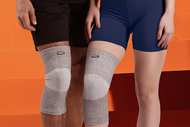From $33.3 billion in 2021 to $43.11 billion in 2023, the peptide treatment market has increased by almost 30% in just two years. And in 2023, it hasn’t slowed down a bit, with exciting peptide drug development hitting the market.
But what makes peptide therapy so popular? And is it actually worth the hype or just a fad?
Let’s explore everything you need to know about it.
What Is Peptide Therapy?
Peptide therapy refers to using a single or a combination of peptides to meet specific needs of the human body, such as building muscle or improving skin texture.
The treatment has many applications and shows a lot of promise in multiple scientific studies.
Peptide therapy is administered orally, topically, or through injections, with the choice of administration typically depending on your condition and preference. People begin to experience significant results within eight to twelve weeks.
What Are Peptides?
Peptides are short strings of two to fifty natural amino acids that serve as the building blocks of proteins. They encourage the production of specific hormones in your body and may reduce the risk of getting long-term diseases, provide protection against cell damage, and lower blood pressure.
You can get essential amino acids from protein-rich food sources like meat, fish, poultry, eggs, wheat, oats, lentils, beans, and seeds. Your body also naturally produces peptides, but this process slows down as you age, which can lead to health complications and deficiencies like:
- Brain fog
- Chronic inflammation
- Diabetes
- Fatigue
- High blood pressure
- Low libido
- Skin damage
- Hair loss
Using therapeutic peptides may help you reduce the chances of these complications. Some of the most common peptides used to improve health include:
- AOD 9604: This FDA-approved therapeutic peptide may promote weight loss by speeding up your metabolism to burn more fat.
- Argireline: It can potentially temporarily reduce the appearance of fine lines and wrinkles by promoting the relaxation of your facial muscles.
- B-type natriuretic Peptides (BNPs): These may relax blood vessels, reduce fluid retention, and reduce blood pressure as a result.
- Body Protection Peptides (BPC-157): These may increase tissue repair and regeneration, improve wound healing, and reduce inflammation.
- Bremelanotide (PT-141): It helps in potentially increasing sexual desire and libido in men and women.
- Collagen Peptides: These encourage collagen production, reduce fine lines and wrinkles, and increase bone mass.
- Glutathione Peptides: They’re anti-inflammatory and antibacterial, which makes them good for combating common illnesses caused by bacteria, viruses, and fungi. They may also improve wound healing.
- Growth Hormone-releasing Peptide: These natural peptides help increase strength and boost muscular development. However, several of them are banned by the World Anti-Doping Agency.
- Glucagon-like Peptides: This peptide drug may help people with type 2 diabetes slow sugar release, boost insulin production, and control their blood sugar.
- Melanocortin Receptor Peptides: They’re used to increase your libido, suppress hunger, and tan your skin.
Aside from these, there are more than 60+ types of peptide therapy used to improve and promote various biological functions. These include natural and modified peptides usually available in injectable, oral, and topical cream forms.
What Are the Applications of Peptide Therapy?
Peptide therapy can be used to address a wide range of issues. Let’s take a look at some of them:
1. Cosmetic
Regular use of peptides like matrixyl in your daily skincare routine can encourage the production of more collagen, reduce wrinkles, firm and plump up the skin, and reduce hyperpigmentation.
It can also reinforce the skin barrier, which helps maintain hydration and protect it from UV rays and pollutants. This prevents oxidative damage from occurring in the first place, which means you develop fewer wrinkles.
2. Muscle Recovery
Exercise causes microscopic damage to your muscle fibers, which can cause them to swell up and feel “sore.” Peptides can help you recover faster by speeding up tissue repair and regeneration.
For instance, body protective compound 157 (BPC-157) has regenerative properties that can help promote the formation of new blood vessels and the regeneration of bone, muscle, and skin.
Similarly, thymosin beta-500 (TB-500) and CJC 1295 can help athletes, bodybuilders, and sports enthusiasts regenerate damaged tissues through quick cell growth and migration. CJC 1295 is particularly good for post-surgery muscle recovery.
Moreover, peptides like BPC-157 and melanotan II also help control inflammation, which, if long-term or excessive, can hinder the healing process. This can reduce your recovery time and make you heal faster.
3. Muscle Building
Many bodybuilders and heavy lifters want to change their body composition as quickly and efficiently as possible. Peptides can help them make sure they retain their muscle while losing fat.
Growth hormone-releasing peptides (GHRPs), for instance, stimulate the production of human growth hormone, which may trigger muscle gain and fat loss. This helps bodybuilders increase strength, endurance, and lean muscle development without any losses.
4. Weight Loss
While peptides weren’t created to resolve weight gain issues, they’re often used to help people lose weight.
For instance, glucagon-like peptide-1 (GLP-1) can increase insulin production and reduce appetite, which helps people with prediabetes or type 2 diabetes control cravings. This can lead to weight loss.
Similarly, semaglutide (in the forms of Ozempic and Wegovy) is an appetite-suppressing and weight loss-promoting peptide that can help people with diabetes lose weight while preserving muscle.
Other peptides that can promote weight loss include liraglutide and tirzepatide.
5. Diabetes
Diabetes is caused by an insulin (which is also a peptide) deficiency and is common in people under 65 and above 18-29 years.
Peptide therapy may help treat diabetes by stimulating insulin secretion, increasing satiety, and help regulate blood glucose levels.
It can improve fasting blood glucose, lower blood glucose levels, and reduce glucose found in hemoglobin.
6. Cardiovascular Disease
Cardiovascular diseases are the leading cause of death for men and women in the US. Cardio-protective peptides may help control blood pressure (the most common cause of cardiovascular disease), which can protect the heart.
For instance, cenderitide is a peptide that can inhibit collagen production and accumulation in the heart (which can lead to the stiffening of the heart tissue and cause cardiac events), reducing the likelihood of cardiac events.
7. Gastrointestinal Disease
Changes in the gut flora and fauna can cause Crohn’s disease, ulcerative colitis, and intestinal ulcers. This can lead to digestion issues and may even damage the intestinal wall.
Peptides have recently received attention for helping with intestinal issues. They can reduce intestinal cell death, reduce damage caused by inflammatory responses, stimulate intestinal blood flow, and slow gastric acid secretion (which can be damaging when excessive).
Calcitonin gene-related peptide (CGRP) can prevent oxidative damage and cell death, improve the blood flow in the stomach, lower acid secretion, and reduce gastric injuries that may cause ulcers.
How Effective Are the Latest Peptide Treatments?
Peptide therapy isn’t just a fad, and there are a lot of studies that have put it to the test.
Let’s take a look at a handful of them:
Muscle Recovery and Building
According to a 2023 study focusing on 55 sedentary male adults, taking collagen peptide supplements over a 12-week period with high-intensity training led to faster muscle recovery and increased explosive and reactive strength.
Similar results were seen in a randomized trial of 30 male volunteers taking PeptiStrong™ (NPN_1) for two weeks. The trial showed that taking 2.4 g of the peptide every day led to improved strength recovery, reduced muscle fatigue, and faster tissue regeneration.
Weight Loss
In a study of 25 obese adults with diabetes, patients treated with GLP-1RA (liraglutide and exenatide) for six months experienced a mean weight loss of 5 kg, a glycosylated hemoglobin (HbA1c) reduction of 1.6%, and a 42% decrease in liver fat.
Patients taking exenatide and liraglutide for three months also experienced similar results in another study. They lost significant weight and fat from around their heart, liver, and stomach.
Cardiovascular Disease
Urocortins (UCNs) are peptide hormones that have been shown in a 2019 study to help relax blood vessels, reduce blood pressure, and lower the chances of a hypertensive crisis contributing to cardiac events.
They also prevent the development of atherosclerosis by suppressing inflammatory responses and improving cell survival during cardiac events, which can increase the chances of survival when having a heart attack.
What to Know Before Undergoing Peptide Treatment
Let’s understand the process of undergoing peptide treatment and what you should keep in mind.
Understand What You Want
Before going in for a peptide treatment consultation, make sure you have your health history and current medical records on hand. It will also help if you know exactly what you want from the procedure.
Be as Clear as Possible During Your Initial Consultation
When you go into your initial consultation, your physician or provider will ask questions to determine whether you’re a good candidate for the treatment, if you’re allergic to any ingredient, and what you want them to address.
Try to be as clear as possible during the consultation. That way, you won’t be disappointed later on.
Get Your Treatment Customized How You Want
Once you’ve informed your treatment provider of your needs and preferences, they can develop a therapy protocol for you. This will include choosing the right peptide, selecting the dosage, and choosing an administration method from peptide injections, supplements, or creams.
Work with your provider to create a customized treatment plan that fits your lifestyle, needs, and preferences.
What Are the Side Effects of Peptide Therapy?
While peptide therapy is unlikely to cause serious side effects, it may cause complications if proper protocols aren’t followed, such as if you self-administer a treatment or visit a clinic with questionable sterility or unverified sources.
Some of these side effects include the following:
- Difficulty breathing
- Hives
- Swelling
- Nausea
- Vomiting
- Diarrhea
- Frequent headaches
- Joint pain
- Hormonal imbalances
- Body tissue overgrowth
- Severe injection site pain
- Blood-borne infection such as HIV (if using non-sterile needles)
- Insulin resistance
- Increased susceptibility to diabetes
You can also experience side effects even if your therapy is properly managed. However, these symptoms are often benign and include:
- Dry mouth
- Headache
- Fluid retention
- Increased hunger
- Physical discomfort
- Injection site pain, swelling, or redness
People who are pregnant/looking to get pregnant, breastfeeding, taking prescription medications, or having long-term health conditions should confirm the safety of their therapy with a health professional before going forward with it.
Frequently Asked Questions
Do I Need a Prescription for Peptide Therapy?
While you can get some peptide supplements over the counter (OTC), you will require a prescription to access more effective therapies. This helps make sure you use only approved peptide drugs.
Does Insurance Cover Peptide Therapy?
It depends on your insurance. Insurance plans often don’t cover peptide therapy because it’s either non-essential or elective. This is why checking with your insurance provider before going for any treatment is important.
Are Peptides Like Steroids?
While both steroids and peptides are performance-enhancing drugs (PEDs), they aren’t the same. Steroids are synthetically manufactured lipids — an entirely different molecular group — that “force” your body to release hormones.
However, peptides are proteins that use specific DNA codes and cell signaling to prompt your body to produce more of a specific hormone, which makes them more effective and longer lasting compared to steroids.
Become Fully Functional With Thermo™ Recovery Wear
Peptides are nature’s best-kept secret. They help you become stronger, work faster, and get the most out of your time. While these miracle strings are slowly lost as you age, peptide therapy can fill the gap.
You can also take their potential benefits to the next level by combining peptides with semiconductor-embedded recovery wear, which can increase blood flow to your knees, ankles, and elbows, helping your peptides nip any inflammation or pain you’re struggling with. This leads to faster recovery and zero pain walking.
Wondering where to get the highest-quality recovery wear? We invite you to take a look at our online collection. It’s got everything you need to get back on your feet safely, quickly, and naturally.





